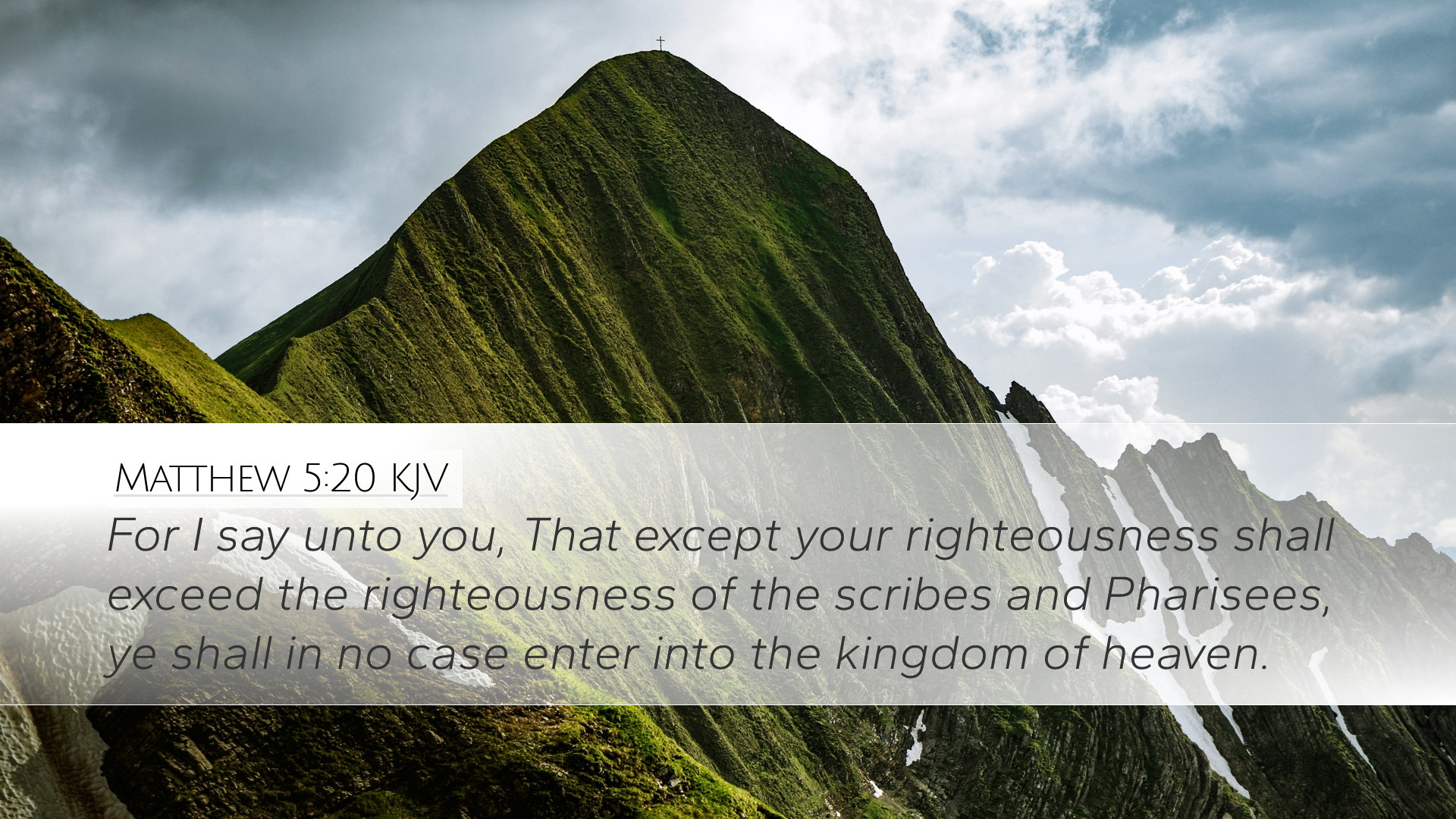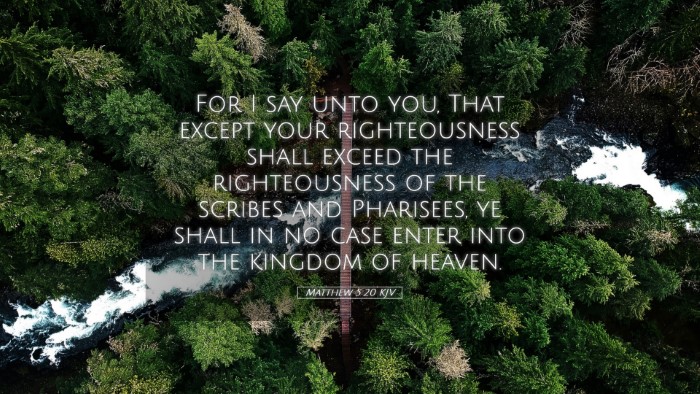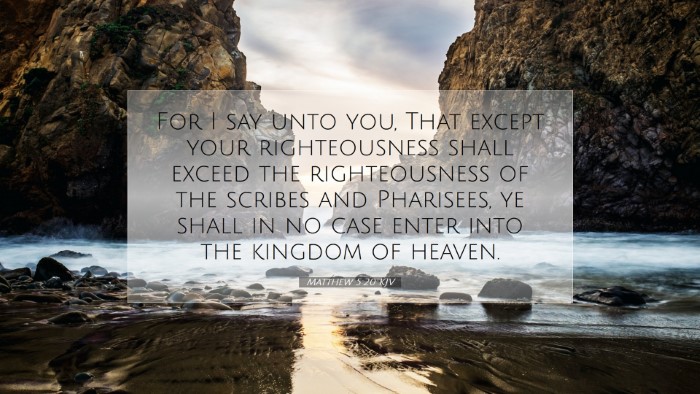Commentary on Matthew 5:20
Matthew 5:20 states:
"For I say unto you, That except your righteousness shall exceed the righteousness of the scribes and Pharisees, ye shall in no case enter into the kingdom of heaven."
Contextual Analysis
This verse falls within the Sermon on the Mount, a foundational discourse delivered by Jesus which elucidates the principles of the Kingdom of God. Here, Jesus establishes a higher standard of righteousness compared to that embodied by the religious leaders of His time — the Scribes and Pharisees.
Implications of Righteousness
The term "righteousness" is central to understanding this passage. It denotes not merely external conformity to laws but an internal state of being aligned with God's will. In contrasting His followers' righteousness to that of the Pharisees, Jesus points to a deeper moral and spiritual integrity.
- Matthew Henry's Commentary: Henry elaborates on how Pharisaic righteousness was characterized by a strict adherence to the law, yet often lacked the spirit of the law. They focused on ritualistic purity and outward appearances rather than genuine faith and heartfelt obedience.
- Albert Barnes's Notes: Barnes emphasizes that the Pharisees were diligent in practicing the law, yet their righteousness was often tainted by hypocrisy. This illustrates the difference between performing religious duties and embodying true righteousness, which stems from the heart.
- Adam Clarke's Commentary: Clarke notes the Pharisees' legalism and how it fostered a superficial form of righteousness. He refers to the comprehensive nature of Jesus’ demands, implying that mere compliance with the law is insufficient.
The Call to a Higher Standard
Jesus challenges His followers to a righteousness that surpasses that of the Scribes and Pharisees. This call implies:
- Authenticity: True righteousness is not merely a facade but is rooted in authentic faith and obedience to God’s commandments.
- Inner Transformation: A transformative experience that results in a lifestyle reflecting God’s character. This aligns with the biblical notion of being a new creation in Christ (2 Corinthians 5:17).
- Comprehensive Obedience: The expectation is for an obedience that goes beyond the letter of the law to embrace the spirit, encompassing love and compassion in one’s actions.
Theological Reflections
From a theological standpoint, this verse invites deep reflection on the nature of kingdom living. Righteousness, as Jesus describes, is integral for entrance into the Kingdom of Heaven, highlighting the necessity of being born of the Spirit (John 3:5).
- Kingdom Citizenship: The mention of entering the Kingdom sets a clear boundary, as mere external compliance renders one unqualified. It suggests that righteousness is a prerequisite for true belonging in God’s realm.
- Grace and Works: While the Scribes and Pharisees were meticulous in their practices, it is through grace that authentic righteousness is achieved. It reflects an essential partnership of faith and works, where true faith produces righteous works (James 2:26).
Pastoral Applications
For pastors and ministers, Matthew 5:20 serves as a poignant reminder of the core of their teaching and ministry:
- Encouraging Authenticity: Leadership should emphasize the cultivation of a heart that seeks after God's will, beyond mere adherence to rules and regulations.
- Fostering Spiritual Growth: Engaging congregants in discussions about the nature of true righteousness fosters spiritual maturity and a holistic understanding of the Gospel.
- Addressing Hypocrisy: It is essential to confront the tendency towards hypocrisy within the community, encouraging transparency and grace-filled accountability.
Conclusion
In sum, Matthew 5:20 is a profound declaration that challenges believers to seek a deeper, more sincere righteousness that aligns with God's character. As the church contemplates this teaching, there lies a call to pursue holiness, reflection upon the heart's intentions, and a commitment to living out the principles of the Kingdom of Heaven. The insights drawn from public domain commentaries remind us that the Christian journey is both a gift of grace and a call to diligent, heartfelt righteousness.


